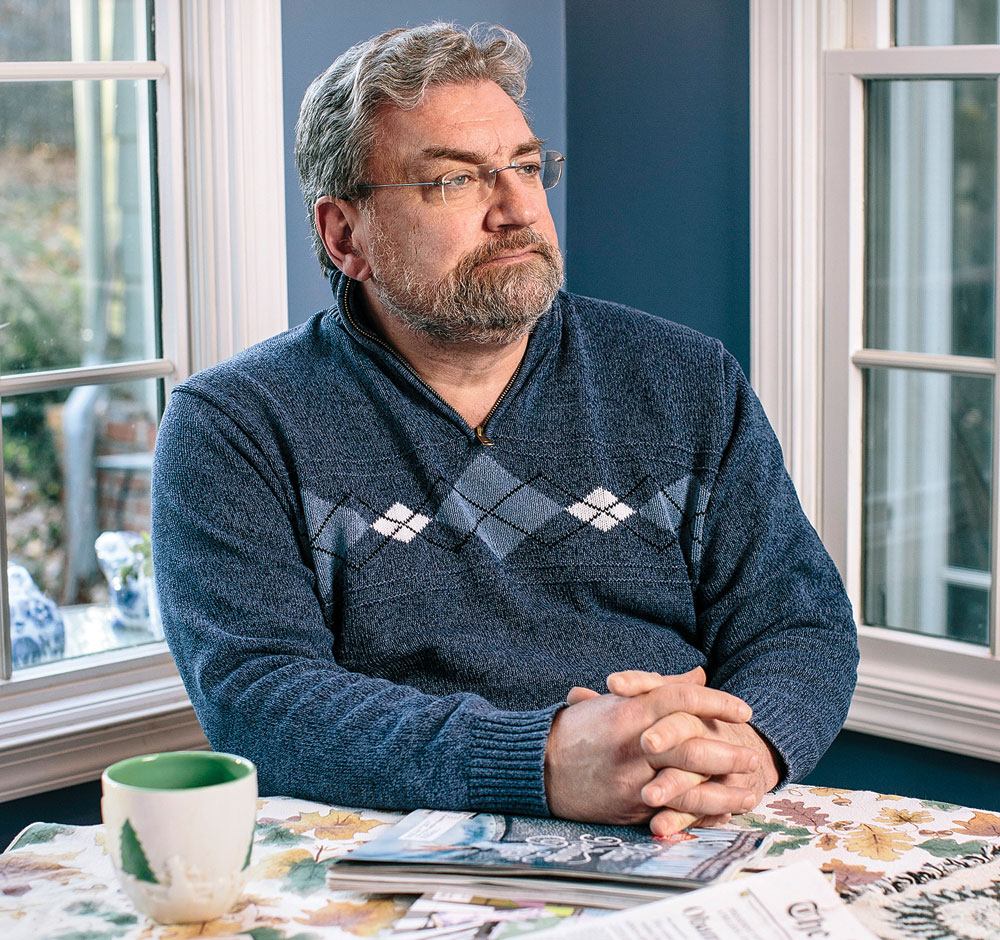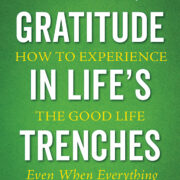
During the presidential election cycle, American politics feeds on fomenting the public’s sense of dissatisfaction and highlighting problems that each candidate claims to be the answer for.
Unfortunately the public tends to buy into this doomsday rhetoric.
Every four years I have at least one or two friends who tell me “This is our final chance – this election will determine whether or not our nation even has a future.”
Various Christian end-times scenarios have contributed to the same pessimism about the future, so that it takes only a strange weather pattern or a report about a tragedy somewhere in the world to justify the pronouncement that “This surely proves we’re living in the end-times!”
I don’t mean to spoil the pity party, but life is actually getting better and better, at least for North Americans and Western Europeans. Life is NOT getting better for Christians in the Middle East, and life is getting worse for many people throughout the world. However, as far as those of us living in North America, Australia, Western Europe and Japan, life has never been better, at least in terms of external measurements such as access to wealth, food, safety, abundance, health, prosperity and leisure time.
This is the thesis of Gregg Easterbrook’s 2003 book The Progress Paradox. Easterbrook combed through mountains of data to show that life for modern Westerners is not only much better (by external standards) than any other time in history, but dramatically and conclusively so.
“…in the main, Americans are steadily better off, and while the rich are richer, the bulk of the gains in living standards–the gains that really matter–have occurred below the plateau of wealth. Almost every person in the United States and the European Union today lives better than did his or her parents. In the United States and Western Europe, almost everything is getting better for almost everybody: This has been the case for years, and is likely to remain the case….
It would be impossible for me to summarize all the data that Easterbrook presents to demonstrate this conclusion, but one very telling data point is that “In 1890, less than 1 percent of American households earned the equivalent of $75,000 in today’s dollars; now nearly a quarter of households are at that favored point.”
But suppose we compare our present lives, not to 1890, but to all of human history? In that case, the picture becomes even more sanguine:
“…the men and women at middle-class standards or above in the United States and the European Union now live better than 99.4 percent of the human beings who have ever existed.
“Average Americans and Europeans not only live better than more than 99 percent of the human beings who have ever existed, they live better than most of the royalty of history, if only owing to antibiotics. As Robert Frank, a professor of economics at Cornell University, has noted, gas-station minimarts now sell cabernets and chardonnays far superior in quality to the wines once drunk by the kings of France.’ Today supermarkets offer at low cost dozens of items almost everyone who has ever lived considered unattainable delicacies and died without tasting.”
Again, I’m giving you Easterbrook’s conclusions without sharing all the data leading to those conclusions, but his research is pretty rigorous.
Okay, I know what you’re thinking. What about the stress of the modern age? What about the anxiety caused by electronic devices, lack of sleep (the average amount of sleep for all human history is 10 hours a night, by the way), information over-load and too many choices? While these factors certainly produce a lot of stress, the truth is that in many respects our lives are less stressful than our fore-bearers:
“Men and women of the past experienced many stress triggers, and not just lions. It’s worth repeating that to have worked fourteen hours a day for pittance wages in an un-ventilated turn-of-the-century fabric mill in Fall River, Massachusetts, or to have farmed the 1880s Nebraska prairie gazing up into the sky for rain and knowing your family would starve if it did not come, was surely stress-inducing. A thousand other past circumstances of life must have been stressful as well.
Although we’re constantly complaining about the world in which we live, most of us know instinctively that life is pretty good even if we haven’t analyzed the economic data. You can prove this with a little thought experiment. Ask anyone with even a mediocre knowledge of history if they would choose to switch places for a life in another time of history, or even another decade of American history, where they would be merely an ordinary person there. When confronted with the opportunity to be an ordinary person here and now, vs. being an ordinary person in any other time in history, few people choose the latter.
To be sure, if we look at the small picture there are many areas where life is getting worse for us as individuals and as a society. But the big picture is that the ordinary person is more prosperous than ever before. The fact that obesity is a greater problem among the poor than the well-to-do merely underscores this point. Throughout 99% of history the poor were pencil-thin.
But this data presents a paradox, which is the fact that happiness has not risen with abundance. To quote again from Easterbrook:
“The percentage of Americans who describe themselves as ‘happy’ has not budged since the 1950s, though the typical person’s real income more than doubled through that period. Happiness has not increased in Japan or Western Europe in the past half-century, either, though daily life in both those places has grown fantastically better, incorporating all the advances noted above plus the end of dictatorships and recovery from general war.”
If we are better off materially than ever before, we are not better off psychologically? Why hasn’t happiness and well-being risen with prosperity?
From a Christian perspective, this paradox isn’t hard to explain. After all, the Christian already knows that wealth, prosperity, and the abundance of things are limited in how much happiness they can generate.
(Notice I did not say wealth doesn’t bring any happiness. Research shows that wealth is one of many factors that may contribute to a person’s happiness, but only up to a certain point. That is why I said that wealth is limited in how much happiness it can bring. The truth is that, all other things being equal, if your children are hungry, if both parents have to work 10 hour days just to pay the bills, and if you are unable to afford basic dental and medical care to get out of pain, then (all other things being equal) life is going to be a hell of a lot more stressful and unhappy than if you have a disposable income whereby you can afford to take your children on vacation, to be picky in the type of education you provide to your children, to give your children music lessons or to take time off work to be together as a family. Money is not a sufficient condition for happiness, but it can be a contributing factor. It is not the most important contributing factor or else people would be happier now than ever before, but it is still a factor.)
Prosperity does not necessarily correlate with wellbeing. In fact, the spiritual life thrives on hardship rather than comfort. However, it is possible to advance spiritually in the midst of so much comfort if (and this is a very big IF) one uses the comfort to cultivate a sense of gratefulness. Sadly, what often happens is that instead of increasing in gratefulness, comfort merely increases our expectations. And hence we are not happy, despite our wealth.
“We feel bad” Easterbrook writes, “though things are getting better; various cultural forces encourage us to seek things to feel bad about…” Maybe it’s time to seek things to feel good about instead of seeking things to feel bad about. However many problems you may have in your life, if you live in the modern West there is so much more that you can be thankful for, including:
- Clean drinking water
- The absence of enemies on the border of your town
- Accessibility of books, music and tools
- Freedom of worship
- A warm place to sleep at night
- Comfortable transportation
- Love from family members or colleagues
- Medical care
- Access to sacraments
- Consistent electricity
- Not having to go hungry every day
Further Reading


